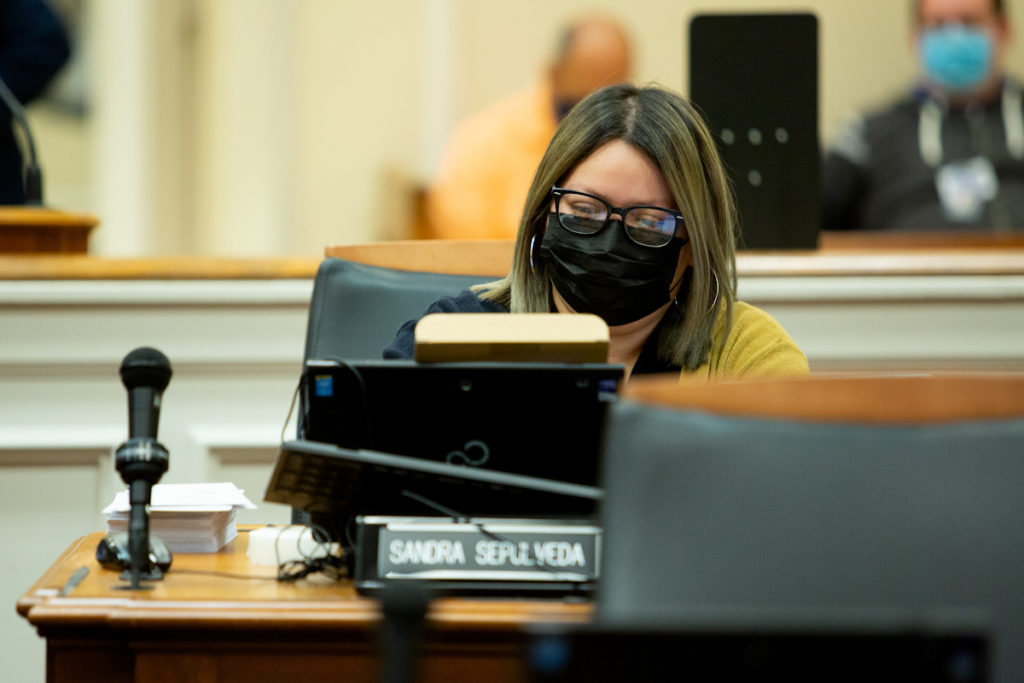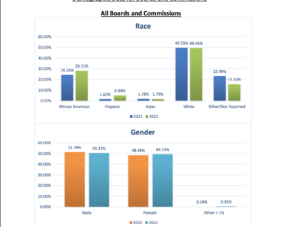
Since 2021, Metro’s elected officials have debated if the city’s boards and commissions reflect Nashville’s population.
Volunteers from the community serve on over 50 boards and commissions. These lesser-known boards can act as gatekeepers, watchdogs and have a little power over how money is spent.
Right now, it’s mostly up to the mayor — and vice mayor, in some cases — to decide who gets nominated. But the council and mayor are working to shift some power to the council and write diversity requirements into the rules.
Take the Board of Ethical Conduct, which could get an increase in members and add representatives from the Tennessee Immigrant and Refugee Rights Coalition and the Nashville branch of the NAACP.
Some Metro boards already have specific professional and ethnic requirements for who can fill the position. For instance, the Civil Service Commission must include a practicing lawyer and the Tourism and Convention Commission requires an African American and a woman. (The charter is clear that an intersectional identity like a Black woman couldn’t satisfy both requirements.)
Councilmember Sandra Sepulveda has continued to press for a systemic effort to increase diversity. “We can’t affect a huge number of boards and commissions, just because some of them are regulated by charter,” she explains. “But the ones we can regulate and change, I think that we should.”
She proposes largely reducing the number of appointments made from the mayor and increasing the need for a majority vote by the whole council.
This year there are more African American, Hispanic and women being appointed to boards compared to last.
 Provided by Metro Clerk
Provided by Metro Clerk This is a screenshot of the Metro Clerk’s annual report of boards and commissions demographics.
Last year, Vice Mayor Jim Shulman had to address a backlog of appointments since the mayor missed several deadlines. Some members of the council pushed for a Hispanic person to be placed on the Fair Commissioners Board. But on different occasions, Shulman recommended Black women, which raised tensions.
This year, boards and commissions got attention again when multiple seats on the Metro Human Relations Commission came up. Mayor John Cooper called for replacing everyone. Once that got attention, he ended up walking that proposal back.
Davie Tucker, executive director of the Metro Human Relations Commission, says he supports the legislation and the community playing a larger role in the process.
“Diversity is not only about race and ethnicity. It’s also about ideology, philosophy, geography,” Tucker said during a recent MHRC meeting. “This is not to say anything negative about this administration or any past administration. It’s just, this would not make us dependent on the benevolence of an administration.”
The Metro Council’s bill is currently being considered. It will have to be approved on second and third reading to become law.
There is also an online application where residents can submit candidates to serve on boards and commissions.

